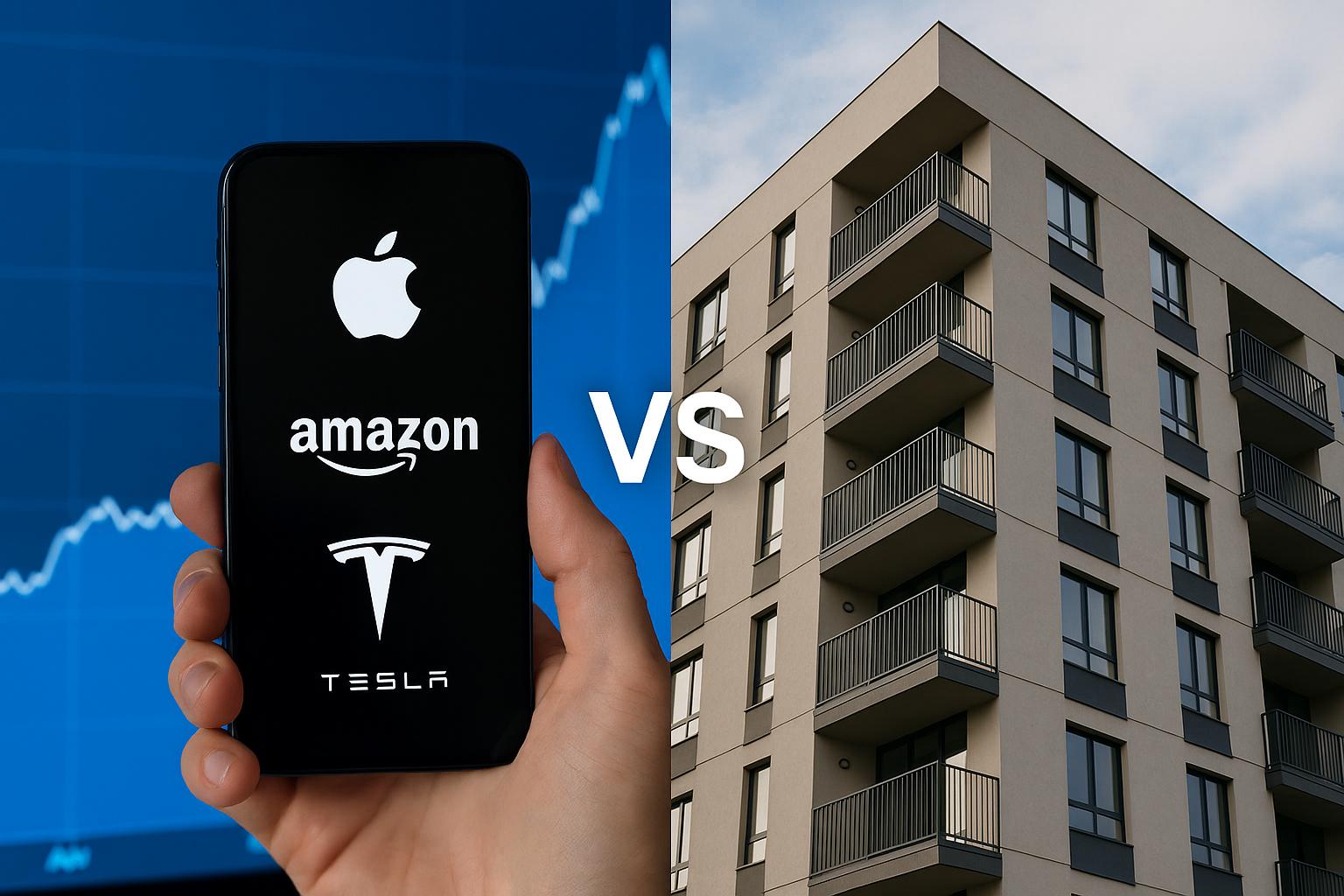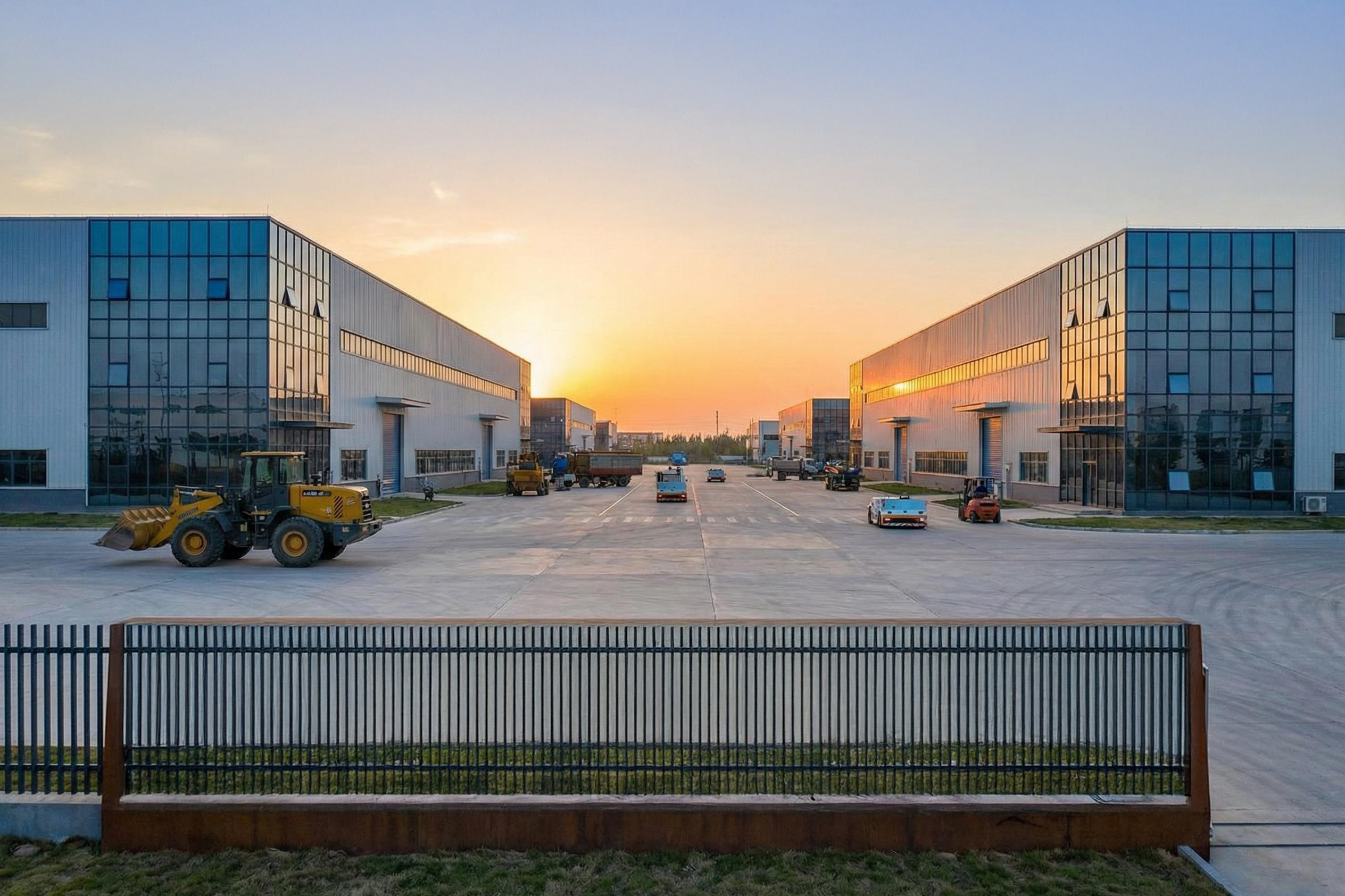With ever-changing markets and trends, it can be hard to know where to start with a new investing strategy. Whether you're a beginner building your first portfolio or a seasoned investor rethinking your exposure, one thing is clear: understanding where value really lies is more important than ever.
Right now, two very different investment paths are getting attention: fast-growing tech companies (like Apple, Amazon, and Tesla) and private real estate , an alternative investment strategy known for steady income and long-term value.
On one side, you have the “Magnificent 7” and Bitcoin—investments rising fast on the excitement around AI and digital innovation. The Magnificent 7 refers to Apple, Microsoft, Amazon, Alphabet (Google’s parent company), Meta (Facebook), Nvidia, and Tesla. These companies have driven a huge share of the recent growth in the stock market and are widely viewed as leaders of the next generation of tech.
These stocks are especially appealing to newer investors because they’re familiar brands and easy to access. You can buy shares through an app, track your gains in real time, and feel like you're part of the future. Add in a booming narrative around artificial intelligence, cloud computing, and digital platforms, and it’s easy to see why tech has become the go-to choice for many.
But these companies—while impressive—also come with real risks. First, many tech stock dividends are between 0.5% and 1%, and some pay no dividends at all. That means investors are relying heavily on future price increases for returns, rather than receiving steady income. Second, valuations are stretched. With stock prices climbing so quickly, even minor disappointments such as slower earnings, regulatory changes, or shifting sentiment can cause major drops. That’s part of why tech stocks are down in some recent quarters, even when the companies beat earnings expectations. The market had already priced in too much optimism.
For more experienced investors, that means revisiting portfolio risk and questioning whether today’s prices truly reflect tomorrow’s potential. For beginners, it’s a valuable reminder that popularity and performance aren’t the same thing, and that buying high in a hot market can backfire.
On the other side is private commercial real estate (CRE). While it doesn’t get the flashy headlines, CRE includes tangible assets like multi-family buildings, retail centers, and industrial properties that generate real cash flow. These are the types of assets you can see, touch, and analyze with straightforward math: rental income minus expenses equals profit.
And right now, many of these properties are trading at major discounts—30% to 40% off their 2021–2022 highs. That’s because rising interest rates, inflation, and uncertainty have cooled the market. But that cooling has also created a buyer’s market for those willing to step in while others are hesitant.
Unlike tech stocks, many private real estate deals offer immediate income, with cash yields typically ranging from 6% to 8% annually. On top of that, they often include strong tax benefits—like bonus depreciation, which can offset a significant portion of your taxable income. Over the life of the investment, many CRE sponsors target internal rates of return (IRRs) in the 18–20% range.
For long-term investors, this kind of predictable, math-driven growth can be far more attractive than chasing momentum in the public markets. You’re not betting on hype—you’re buying real value at a discount.
Here’s a quick side-by-side comparison:
| Feature | Mag 7 & Bitcoin | Private CRE (Deep Value) |
| Income Yield | Very low (0–0.3%) | High (6–8% cash yield) |
| Total Return (Proj.) | Speculative, momentum-driven | 18–20%+ IRR, grounded in fundamentals |
| Liquidity | High (public market) | Low (long-term hold, illiquid) |
| Volatility | High | Low to moderate |
| Fundamental Value | Priced for perfection | Math-driven and predictable |
| Tax Benefits | Minimal | Strong (bonus depreciation) |
| Risk-Adjusted ROI | Uncertain | Attractive/asymmetric |
| Sentiment | Bullish/“greed is high” | Cautious/fearful—contrarian zone |
So why aren’t more people talking about real estate right now? That’s exactly the point.
As famed value investor Ben Graham once said, “The investor’s chief problem—and even his worst enemy—is likely to be himself.” Emotional decisions, fear of missing out, and herd mentality often lead people to buy at the wrong time and ignore what’s truly undervalued.
Graham’s most famous student, Warren Buffett, echoed this idea with his classic advice: “Be fearful when others are greedy, and greedy when others are fearful.”
If your goal is to build wealth steadily while avoiding unnecessary risks, private real estate may be the smarter move—whether you’re just starting out or already a seasoned investor. While waiting on tech stock dividends can be a slow and uncertain process, real estate income begins on day one and compounds over time.
This isn’t about abandoning tech stock. It’s about diversifying into something more grounded, something that performs even when sentiment shifts and headlines fade. In a world full of noise, the calm of cash flow, tax benefits, and long-term value can bring clarity to your financial strategy.
Ready to explore private real estate investing?
You don’t need to be an expert. You just need the right strategy and support.
Learn more or book a call with our team: tempofunding.com/
Let’s help you build your future with investments that make sense—and make money.


